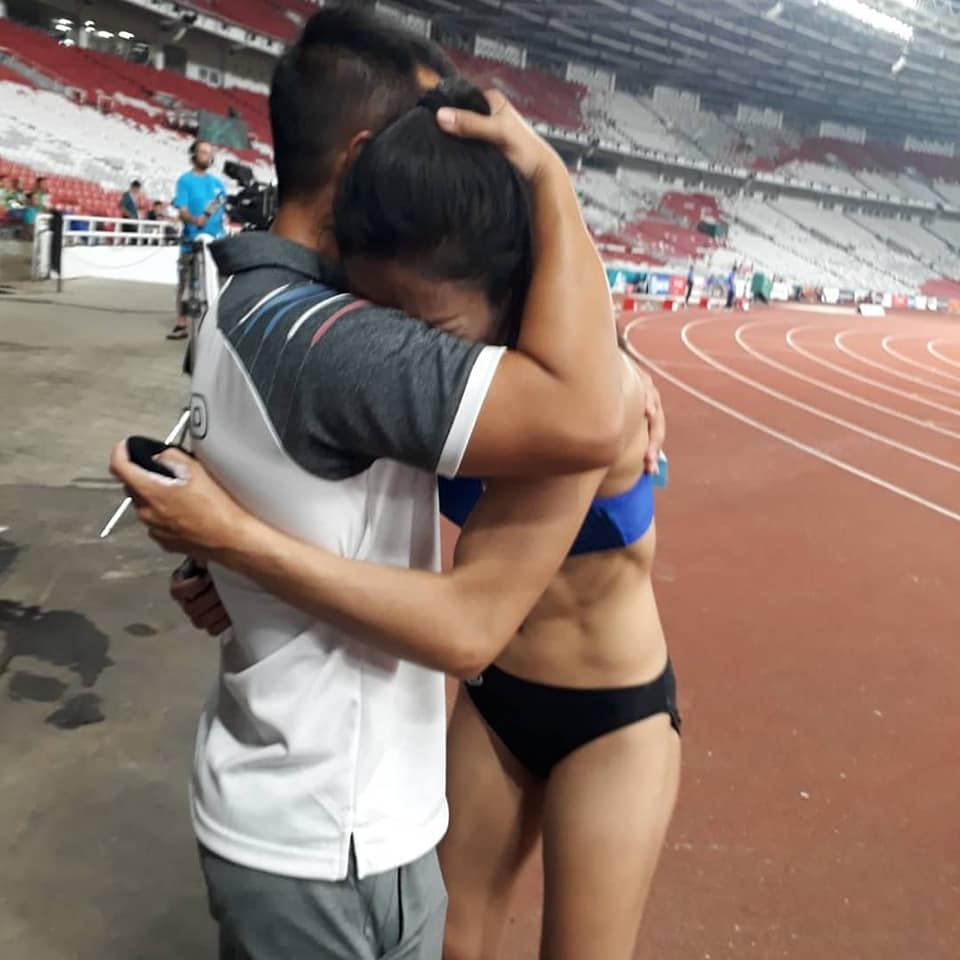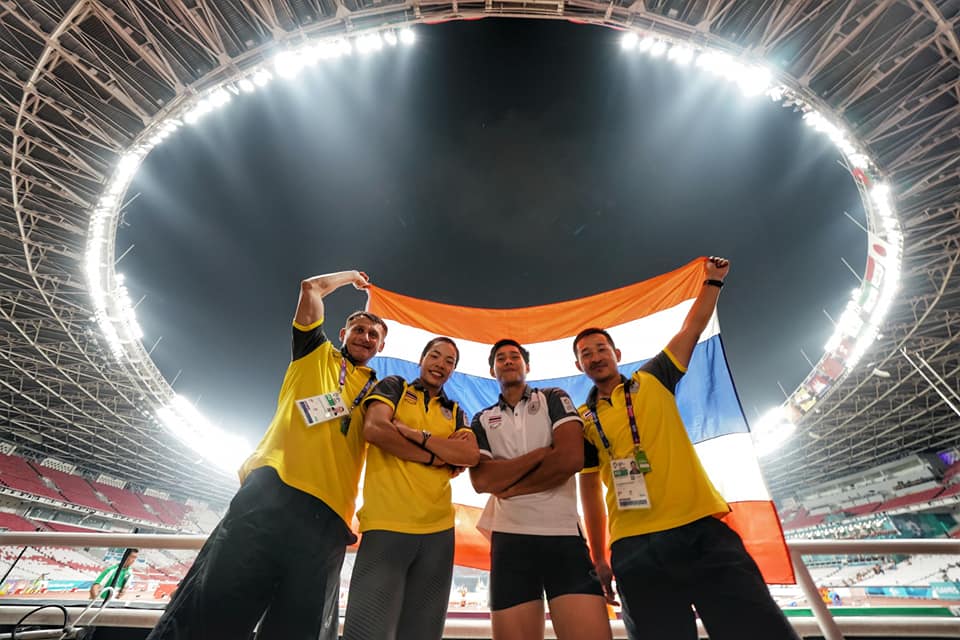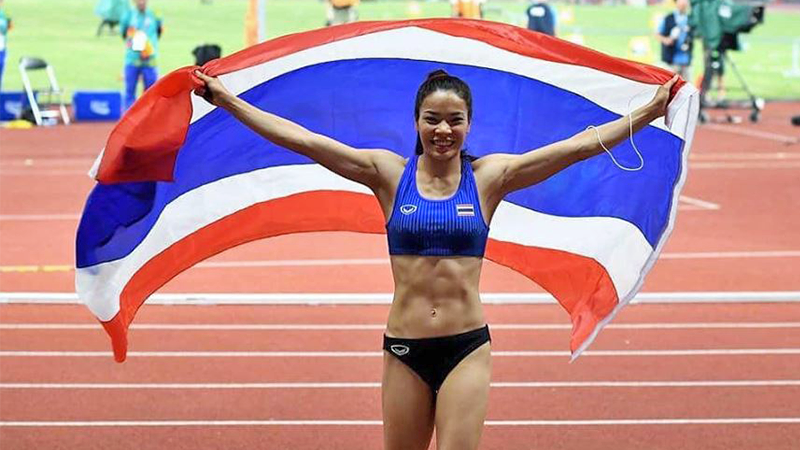Netizens all over Thailand leaped with pride on Tuesday when Chayanisa Chomchuendee pole-vaulted her way to the country’s first ever silver medal in the discipline.
That’s right. Since the first Asian Games event in 1951, no Thai athlete — male or female — has ever medaled in pole-vaulting. What’s more, Chayanisa also set a new national record with her vault of 4.30 meters.
Yep, she’s a total badass — and look at those abs.
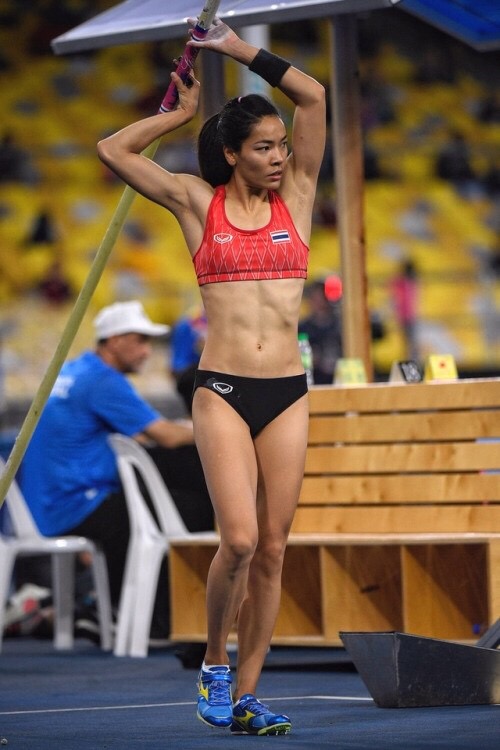
For those unfamiliar with the sport, pole vaulting is a track and field event in which competitors leap over a high horizontal bar by sprinting along a runway and jamming a long, bendy pole on what’s known as a “stop board” to propel themselves upwards.
You get no points at all if you knock the bar off on your way over the top.
Sound difficult? It is, even for someone who practices five days a week, year-round. In fact, having dabbled in other track and field disciplines including the high jump, Chayanisa regards pole vaulting as the most challenging of all as it requires both technique and equipment.
“I hit my personal best record at 25 years old when I won a gold medal at the Southeast Asian Games, and I’ve been aiming to break it ever since,” the champion told Coconuts Bangkok via phone yesterday evening.
“Never thought I’d break it when I’m this old,” the now-29 year old added with a giggle.
“When I reached 4.30 meters, I was so happy I honestly couldn’t believe it.”
Pole vaulting is also legitimately dangerous, as evidenced by the number of fatalities historically associated with the sport. A study by the US-based National Center for Catastrophic Sports Injury Research found that half of the 32 “catastrophic” pole-vault injuries that occurred in that country between 1982 and 1998 resulted in deaths while six caused permanent disabilities.
Though rules were changed in 2003 to expand the landing pad’s minimal dimension as a safety precaution, a follow-up study showed that two of 19 athletes in similar-level incidendent died from their injuries.
A northeastern Surin province native, Chayanisa’s love for athletics started at a young age. She began gymnastics at about 9 years old, and by the time she was 11, had already left home to attend a boarding school in Sisaket that specializes in sports.
“I haven’t lived with my parents since I was very young,” she said, after thanking fans who had briefly interrupted our interview to congratulate her.
“I quit gymnastics when I was around 12 because I wasn’t very good at it nor was I physically suitable for it, and started high jumping.”
After Sisaket, she moved to Bangkok to attend the prestigious Thammasat University, where an older student persuaded her to start vaulting during her second year at university.
“It looked like such a challenge, so I wanted to give it a try,” the now 10-year participant in the sport recalled.
Her aspiration to compete professionally also started around the same time.
“When I was a freshman, I remember watching older students compete in the SEA Games,” she continued. “They were wearing the two-piece national team uniform in the field and I just thought they looked so beautiful and prideful.
“I just wanted to be there, in the national team for once in my life — I wanted to know what that felt like.”
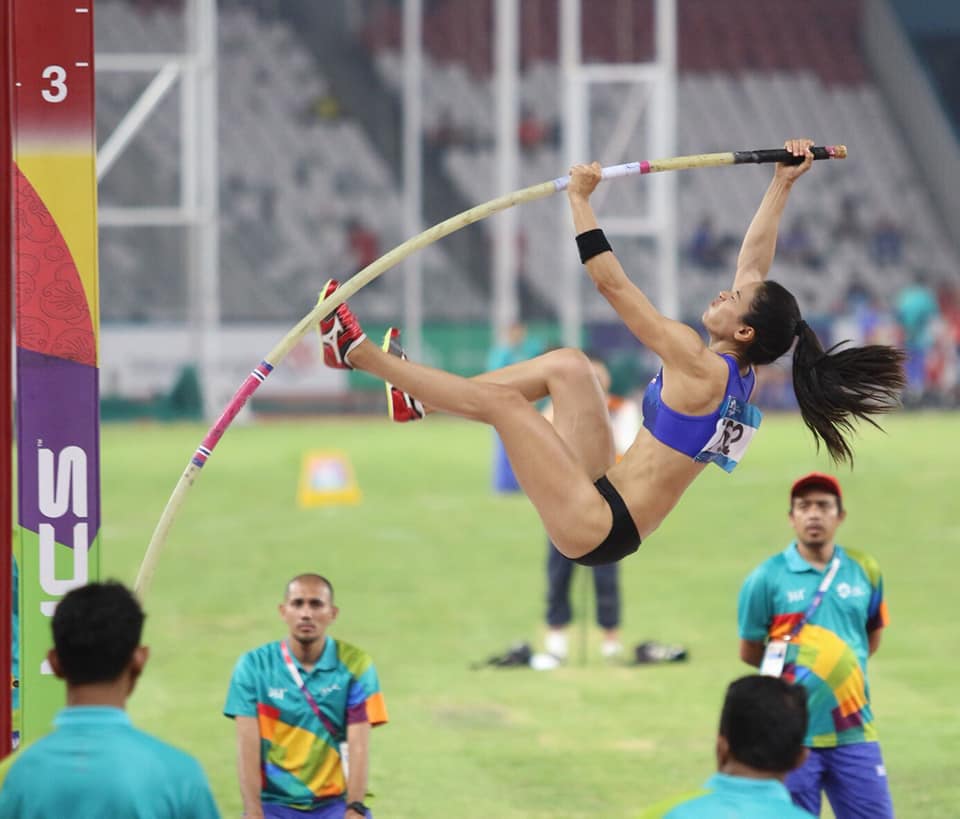
Unable to contain our ab-miration any longer, we asked Chayanisa about her exercise routine and for any fitness secrets.
“There is no secret,” she chuckled. “It’s a lot of hard work. With vaulting, you’re using every part of your body, so I routinely have to work out every muscle. Practicing other disciplines like high or long jump and lifting is important, too.”
So what’s the next challenge this champion hopes to conquer?
“You know everybody is telling me to compete in the Olympics, and I really want to too,” Chayanisa said. “But I don’t really want to tell people, because I don’t want to let anybody down. I’m scared of setting my supporters up for disappointment.”
Ah, humility and grace — such a breath of fresh air in this day and age, huh?
“The biggest obstacle for me right now though is probably career trajectory,” said Chayanisa, who wants to eventually transition into work in government service — like her father, a career military man.
“People tell me to get a job in sports, and look down on things I want to do, like police work. They only bring up the negative connotations to the job like corruption,” she continued. “They tell me to get an honest job and ask me ‘why I’d ever want to be a cop’. When I read comments like that [via social or local media] I get a little sad.”
Getting a job down the line is a very real concern for Chayanisa, who explained the harsh reality of being an athlete.
“I’ve been doing this for a long time, but I still don’t get a steady paycheck. You only get paid around the time of a big competition like the Asian Games or SEA Games. I’m a champion, but sometimes I make less than minimum wage.
“Yeah, sometimes I don’t even make THB15,000 (about US$460) a month.”
She pointed out that there are beneficial sectors in government work where her skillset can be useful: “People judge you, but they don’t know the whole truth. They don’t look at my situation from all aspects.”
As for plans to celebrate her big win, Chayanisa has yet come up with one, as she’s scheduled to return to Bangkok tomorrow, along with the rest of the national teams.
“Everyone keeps asking me how I’m going to celebrate, but I honestly have no plans. I’ll probably just go back to my normal life,” she said. “I like simple things. I’ll have dinner with friends if they want, but I’m not a big fan of going out or anything. Sports already account for a lot of my life.”
For now, she’s simply happy to cheer on her fellow national teammates in Jakarta as final events of the Asian Games unfold this weekend.
